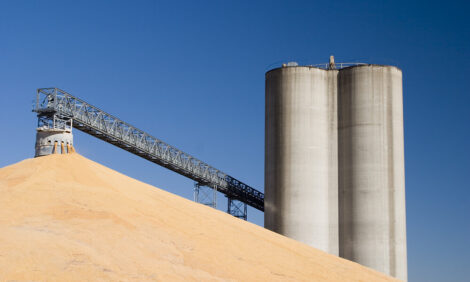



Collaboration Key to Successful Food Supply Chain Post-Brexit, Says NFU
UK - NFU Deputy President Minette Batters told an audience of policymakers within the UK food supply chain that the integrity of British produce must be the focus pre and post-Brexit.Speaking at the Westminster Food & Nutrition Forum, Mrs Batters said it is vital that leaving the EU doesn’t hinder the nation’s flagship industry.
Mrs Batters said: “The opportunity we have is a policy tailor-made for our country and our sector. The ripple effect of this policy will be felt right through the food supply chain ending with the public – the people eating the food we produce. But we can only achieve this through collaboration, be that at Government level, UK food industry level, along the supply chain and at farm level.
“Farming is a long-term business. I, like many farmers, am making decisions now for beef products hitting the market in early 2020. Even with the best will and planning, I’m making these decisions not knowing the trading environment I'll be operating in. If agricultural sectors work together, collaboratively with their supply chains to offer quality British Red Tractor food at an affordable price, this will put up a strong defence against cheap imported food.
“We have seen our members faced with short notice price and specification changes and unreasonable contract terms as well as members suppling retail with ornamental products required to pay to stay, unreasonable customer complaint charges and a lack of commitment on volumes.
“We want to see more retailers, food service and food manufacturers’ fall under the scope of GSCOP to ensure the principles of fair trading are inherent across the supply chain. We also want to see the principles of the agri-voluntary codes made compulsory and over seen by the GCA to give them more teeth. This would drive a more collaborative approach in UK supply chains.
“This should include the Ornamentals sector - an industry worth £2 billion to the UK economy.
“British farming is the bedrock of the nation’s food and drinks industry - the largest manufacturing sector in the UK – worth £108 billion and providing jobs for 3.9 million people. And for every £1 invested in farm support, farming delivers £7.40 back to the economy.
“We now have a unique and historic opportunity to influence a policy that could ensure British farming, the nation’s food production and the iconic British countryside thrives, not just survives. But we need political leadership and answers in order for us to prepare for the post Brexit world.”








